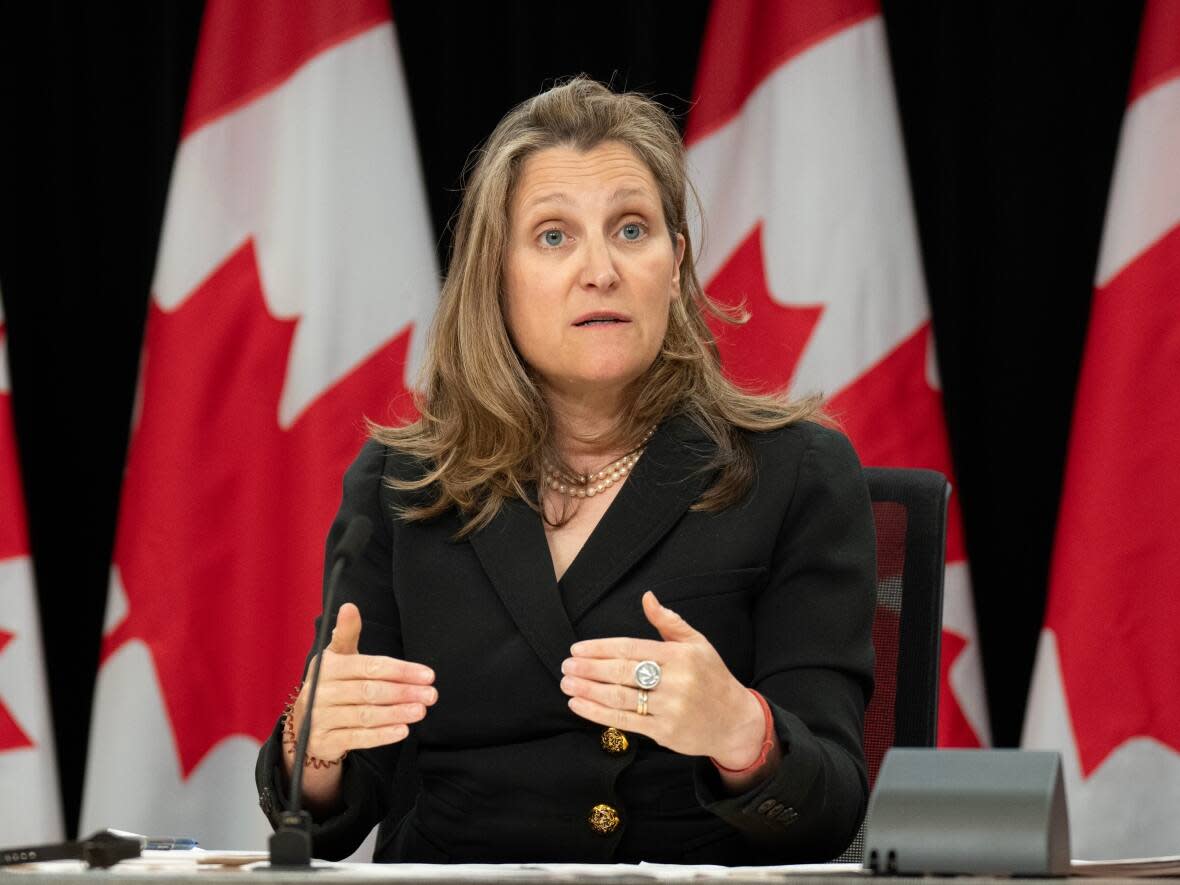Capital gains tax legislation coming before summer break, Freeland says

The Liberal government will introduce legislation to implement its proposed changes to the capital gains tax before the House rises for the summer break, Deputy Prime Minister and Finance Minister Chrystia Freeland said Tuesday.
The increase in the "inclusion rate" — from one-half to two-thirds on capital gains above $250,000 for individuals — was first announced in the budget.
"In the coming weeks and certainly before the House rises, we will begin the legislative process to implement our increase in the inclusion rate," she said
After announcing the increase, the Liberal government separated the capital gains tax change from its budget implementation bill and promised to introduce a separate bill that will require its own vote.
The change was detailed in the budget's tax annex, which means the Canada Revenue Agency (CRA) can enforce the change provisionally until the legislation passes.
Prime Minister Justin Trudeau said Thursday the tax change will take effect on June 25.
Conservative Leader Pierre Poilievre was asked last week whether he supports the tax change.
"There is no such increase," he replied. "They've pulled that out of the budget."
Freeland challenged Poilievre on that answer Tuesday, saying the Conservative leader has been "deflecting when asked about his position on" the capital gains change.
"It is important for Canadians to insist on a clear answer from the Conservatives on tax fairness and, I think, depending on what answer we get, Canadians will know whose side the Conservatives are really on," she added.
A spokesperson for Poilievre told CBC News Tuesday that because legislation has yet to be introduced to the House, his position has not changed since last week.
"The legislation you are asking about doesn't exist yet due to Justin Trudeau's incompetence, so it's impossible for us to weigh in on the matter," Sebastian Skamski, Poilievre's press secretary, said in an email.
Skamski also said Freeland is making up the policy "on the fly."
"It's obvious that their incompetence will only cost Canadians more," he said.
Freeland has said that the increase will bring in as much as $19 billion in new revenue.
Changes to capital gains for individuals
A capital gain is the difference between the cost of an asset — an investment property, a stock or a mutual fund — and its total sale price. Right now, only 50 per cent of capital gains are taxable.
Once the changes are implemented, 50 per cent of the first $250,000 in capital gains an individual taxpayer earns will be taxed. For every dollar beyond $250,000, two-thirds will be taxable.
The budget proposes to tax all capital gains earned by corporations and trusts at the two-thirds rate.
The 2024 budget maintains the existing exemption for capital gains from selling a principal residence. It also retains an existing lifetime capital gains tax exemption on the sale of small business shares, and farming and fishing property.
According to federal government data, 28.5 million Canadians are not expected to have any capital gains income at all. Three million are expected to earn capital gains below the $250,000 annual threshold.
The government data indicates only 0.13 per cent of Canadians — people with an average income of about $1.4 million a year — are expected to pay more in personal income tax on their capital gains as a result of the change.

 Yahoo News
Yahoo News 
